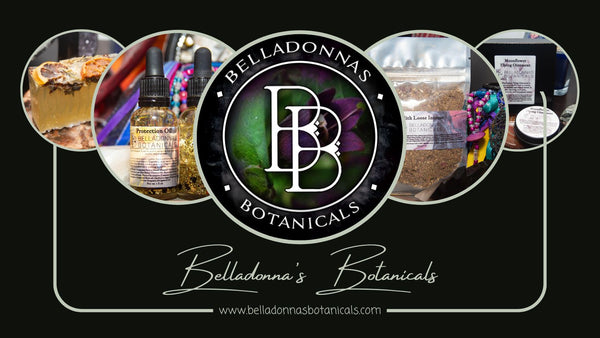I was in the beginning process of writing this blog post when a compelling article came across my Twitter feed on this very subject.
We all love essential oils, right? and use them in various ways every day. As essential oils have grown in popularity to the point where you can even purchase them in drugstores, the reports of adverse reactions have gone up in tandem. It is not that essential oils are inherently unsafe, but there are safety precautions for every essential oil and a potential risk for adverse reactions -- even from something as innocuous as Lavender.
There is a popular myth that if someone has a dermal reaction to an essential oil or blend that their body is just "detoxing" and that the reaction is the bodies way of saying that "you need this oil" or to continue using the oil or blend even if it is causing dermal irritation or sensitization. This information gets passed down a lot on websites, blogs, YouTube, and in essential oil related Facebook groups and it is categorical misinformation -- regardless of the purity of the oils that you are using. Purity does not equate to safety. Adverse reactions don't only happen when using cheap, adulterated oils, and this is an unfortunate fact. I am not intending to scare anyone, but you should be aware of essential oil safety before using oils yourself or making products or recommendations to family and friends.
If you have an adverse reaction to an oil - you may never be able to use that oil again for years or for the rest of your life. There are several factors that can lead to such reactions: incorrect dosing, frequency of use, longevity of use, type of application (especially "neat" undiluted applications), and your own personal bodily constituency. If you or someone you know has an adverse reaction, it is recommended to stop using the oil and seek medical attention. Not everyone will have skin reactions and most might be very minor.
Types of Skin Reactions
-
Dermal irritants produce immediate irritation on the skin. This may present as blotching or redness and may be painful. Avoid application of known dermal irritant essential oils on inflammatory and allergic skin conditions, on open or damaged skin, undiluted application; always dilute known dermal irritants with a carrier oil, and for sensitive skin, perform a skin patch test.
Bay, Cinnamon Bark or Leaf, Clove bud, Citronella, Cumin, Lemongrass, Lemon Verbena, Oregano, Tagetes, and Thyme ct thymol.
-
Dermal Sensitization is the most common skin reaction to essential oils is sensitization, or allergic contact dermatitis. On light-colored skin, it presents as a bright red rash, and on darker skin it appears as a dark blush. There are two types of dermal sensitization - immediate hypersensitivity and delayed hypersensitivity (which happens upon subsequent use of the same oil.)
Backhousia, Cassia, Cinnamon Bark or Leaf, Clove leaf, Peru Balsam, Tea Absolute, Turpentine Oil, and Verbena Absolute.
-
Idiosyncratic irritation or sensitization is an uncharacteristic or unusual reaction to a commonly used essential oil. This type of reaction is difficult to predict and rarely occurs but is a possibility.
This can happen with any oil even ones that have GRAS status (generally regarded as safe)
-
Mucous membrane irritants will produce a heating or drying effect on the mucous membranes of the mouth, eyes, nose, and reproductive organs.
Bay, Caraway, Cinnamon Bark or Leaf, Clove bud, Lemongrass, Peppermint, and Thyme ct thymol.
-
Photosensitivity: Certain essential oils especially citrus oils are photosensitive. This means they absorb sunlight or radiant energy more intensely than your skin naturally would. This is a reaction to a substance applied to the skin that occurs only in the presence of UV light -- sunlight or artificial lights.
Angelica Root, Bergamot, Cumin, Grapefruit (distilled or expressed), Lemon (expressed), Lime (expressed), and Rue.
[Source: The New York Institute of Aromatic Studies: Foundations of Aromatherapy Certification Program]
My recommendation for burgeoning aromatherapists and essential oil distributors is to research and educate yourself on essential oils in general and their safety precautions -- and most importantly to do so through reputable resources because anyone can publish a blog or post to a forum or Facebook group inaccurate information. Many aromatherapy schools have free online courses about essential oil basics as well as advanced certification courses.
Recommended reading and resources:
Robyn’s Adverse Reaction to Essential Oils (CW: images of extreme skin reactions to essential oils)
Tisserand Institute + Adverse Reaction Database (CW: database contains graphic image of skin reactions to essential oils)

